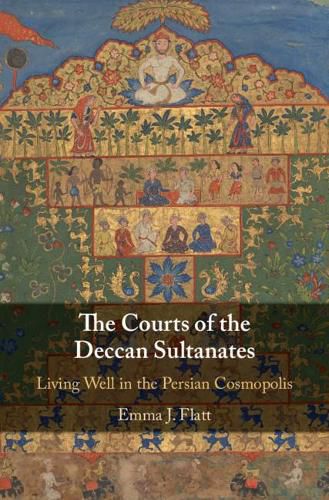Readings Newsletter
Become a Readings Member to make your shopping experience even easier.
Sign in or sign up for free!
You’re not far away from qualifying for FREE standard shipping within Australia
You’ve qualified for FREE standard shipping within Australia
The cart is loading…






In the late fifteenth and sixteenth centuries, courtliness was crucial to the political and cultural life of the Deccan. Divided between six states competing for territory, resources and skills, the medieval and early modern Deccan was a region of striking ethnic, linguistic and religious diversity. People used multifaceted trans-regional networks - mercantile, kinship, friendship and intellectual - to move across the Persian-speaking world and to find employment at the Deccan courts. This movement, Emma J. Flatt argues, was facilitated by the existence of a shared courtly disposition. Engagement in courtly skills such as letter-writing, perfume-making, astrological divination, performing magic, sword-fighting and wrestling thus became a route to both worldly success and ethical refinement. Using a diverse range of treatises, chronicles, poetry and letters, Flatt unpicks the ways this challenged networks of acceptable behaviour and knowledge in the Indo-Islamicate courtly world - and challenges the idea of perpetual hostility between Islam and Hinduism in Indian history.
$9.00 standard shipping within Australia
FREE standard shipping within Australia for orders over $100.00
Express & International shipping calculated at checkout
In the late fifteenth and sixteenth centuries, courtliness was crucial to the political and cultural life of the Deccan. Divided between six states competing for territory, resources and skills, the medieval and early modern Deccan was a region of striking ethnic, linguistic and religious diversity. People used multifaceted trans-regional networks - mercantile, kinship, friendship and intellectual - to move across the Persian-speaking world and to find employment at the Deccan courts. This movement, Emma J. Flatt argues, was facilitated by the existence of a shared courtly disposition. Engagement in courtly skills such as letter-writing, perfume-making, astrological divination, performing magic, sword-fighting and wrestling thus became a route to both worldly success and ethical refinement. Using a diverse range of treatises, chronicles, poetry and letters, Flatt unpicks the ways this challenged networks of acceptable behaviour and knowledge in the Indo-Islamicate courtly world - and challenges the idea of perpetual hostility between Islam and Hinduism in Indian history.